Publications
Articles, publications, books, tools and multimedia features from the U.S. Institute of Peace provide the latest news, analysis, research findings, practitioner guides and reports, all related to the conflict zones and issues that are at the center of the Institute’s work to prevent and reduce violent conflict.

Osama Gharizi on U.S. Objectives in Syria
From Lebanon, Osama Gharizi shares his analysis about the clarity of U.S. objectives after retaliatory missile strikes targeting the Assad regime’s suspected chemical weapons facilities. Gharizi says these strikes sent a signal to Assad and his allies that there are limits to U.S. and coalition intervention in Syria. In turn, these limits strengthen Russia, Turkey, and Iran’s roles as the diplomatic arbiters to negotiate a peace deal. Separately, Gharizi addresses the risks associated with the suggestion of setting up an Arab force in Syria that could create further obscurity in terms of U.S. intent and objectives versus those of Arab countries forming such a force.
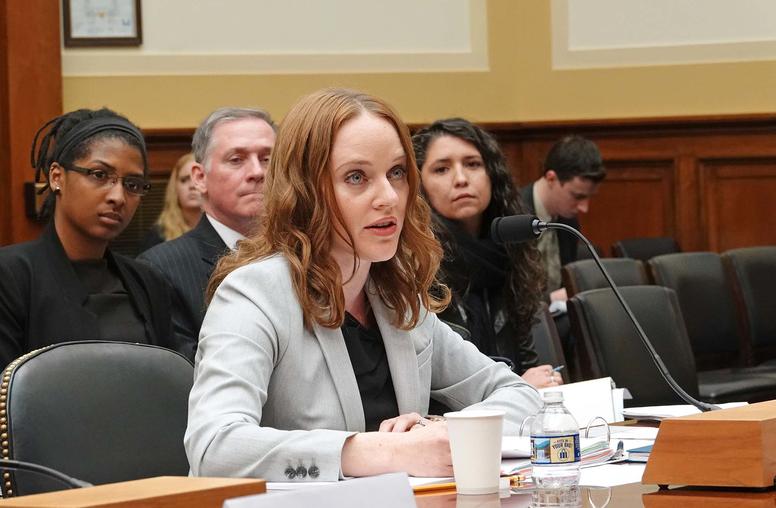
Grading Counterterrorism Cooperation with the GCC States
This testimony covers the following questions: (1) How have GCC countries addressed violent extremism and terrorism within their own national borders; (2) How have GCC countries addressed violent extremism and terrorism regionally and internationally; and, (3) What recommendations can enable future GCC efforts to go beyond eliminating today’s terrorists and prevent terrorism from emerging in the first place?
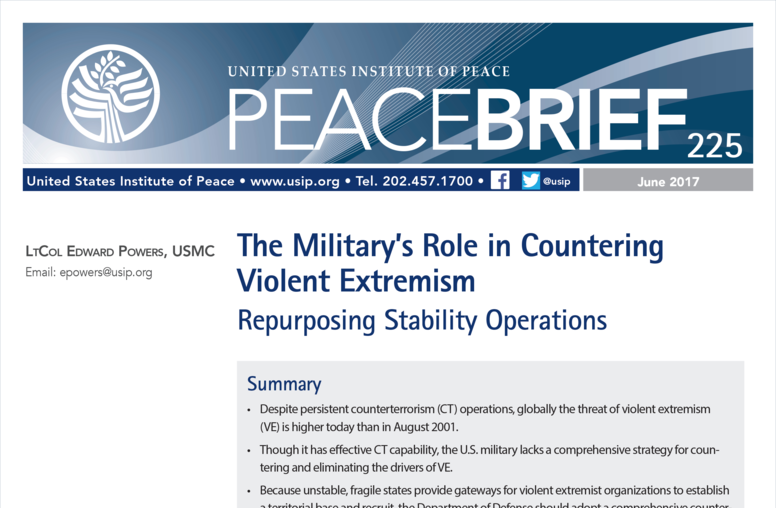
The Military’s Role in Countering Violent Extremism
The U.S. military, through its stabilizing mission, has a role to play in countering and eliminating the drivers of violent extremism (VE). Though the military has effective counterterrorism (CT) capability, there is a gap in its counter-VE (CVE) strategies that can be closed by linking reactive CT operations to preventative efforts to remove the drivers of VE. ...

Ambassador Bill Taylor on the Alleged Russian Use of Chemical Weapons
The alleged Russian use of a chemical weapon against a former Russian spy turned double agent in the United Kingdom led to scores of Russian diplomats being sent packing from the United States and Western Europe. Ambassador Taylor discusses the strong showing of unity among Western nations, and its effect on Russian intelligence gathering efforts and additional U.S. and international economic sanctions.
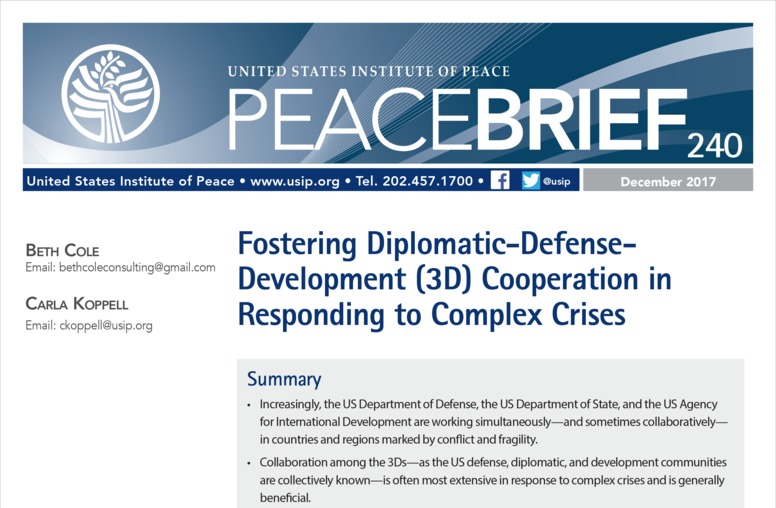
Fostering Diplomatic-Defense-Development (3D) Cooperation in Responding to Complex Crises
The US diplomatic, defense, and development communities (known as the “3Ds”) increasingly find themselves working together to tackle complex crises. This collaboration has already proved its worth, but how can it be made even more effective? A recent USIP research project sought to...

Priscilla Clapp on the Violent Fallout from Myanmar’s Coup
Myanmar’s military expected to reclaim control quickly after February’s coup. But USIP’s Priscilla Clapp says that “when the civilian protests persisted beyond a month, the military began to panic … As a result, the country has descended into chaos and widespread indiscriminate violence.”
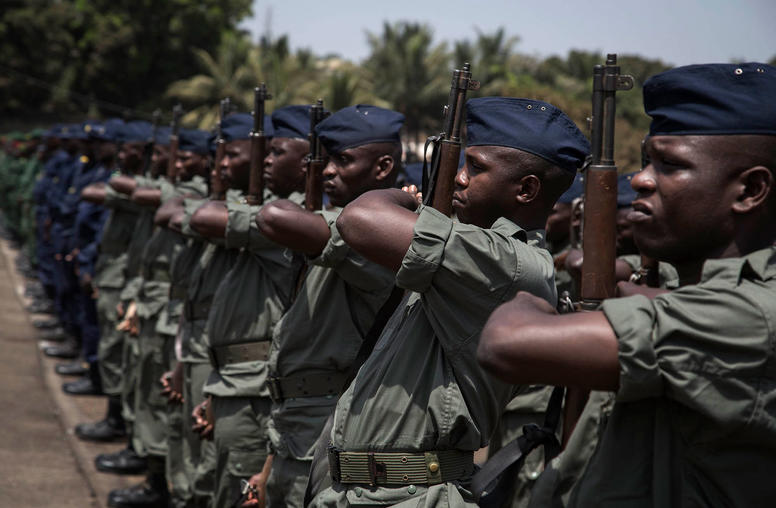
Guinea’s Lesson for Strengthening Democracy: Use ‘Peer Power’
As dozens of nations seek to strengthen democracy at this week’s White House summit, indicators for effective methods can be found in Guinea, one of five nations that this year suffered a coup by its military. An overarching lesson is for the United States and other more distant governments and institutions to recognize the greater efficacy of putting regional communities in the lead. For Guinea, this will mean supporting a stronger role by neighboring countries and the Economic Community of West African States (ECOWAS)—a 15 nation grouping that has shown real promise as a promoter of democracy.
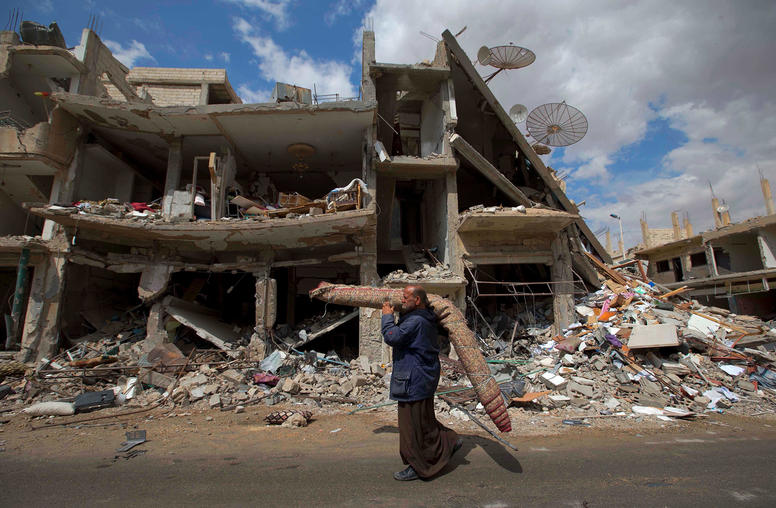
The Fatemiyoun Army: Reintegration into Afghan Society
Since 2013, as many as 50,000 Afghans have fought in Syria as part of the Fatemiyoun, a pro-Assad force organized by the Iranian Revolutionary Guards Corps. Based on field interviews with former fighters and their families, this Special Report examines the motivations of members of the Afghan Shia Hazara communities who joined the Fatemiyoun as well as the economic and political challenges of reintegrating them into Afghan society.
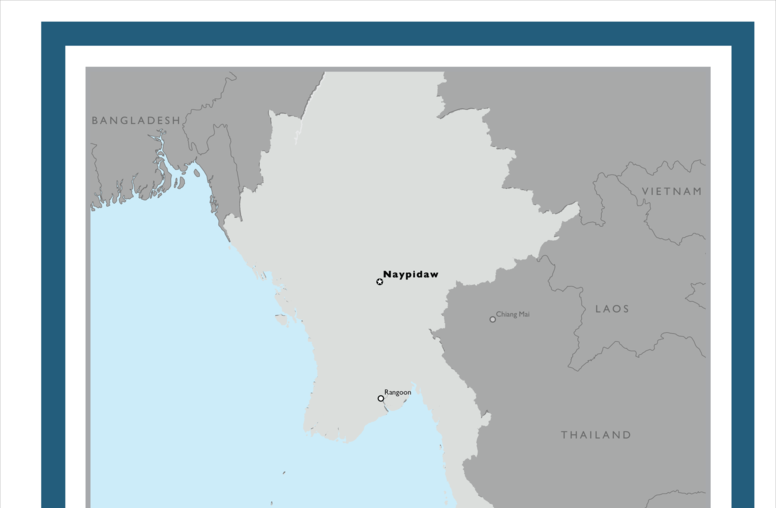
From Pariah to Partner: The US Integrated Reform Mission in Burma
This series of case studies—Burma (2009-2015), Jordan (2011-2016), and the Lake Chad Region (2013-2016)—document efforts and draw lessons from where US government leaders believe deepening crises were staved off through collaborative inter-agency engagement. Part of USIP’s “3D Learning from Complex Crises” project, the cases provide programmatic and operational lessons from complex operating environments. These lessons support systemic integrated approaches to complex crises and will better equip individuals to share objectives when working in inter-agency environments.
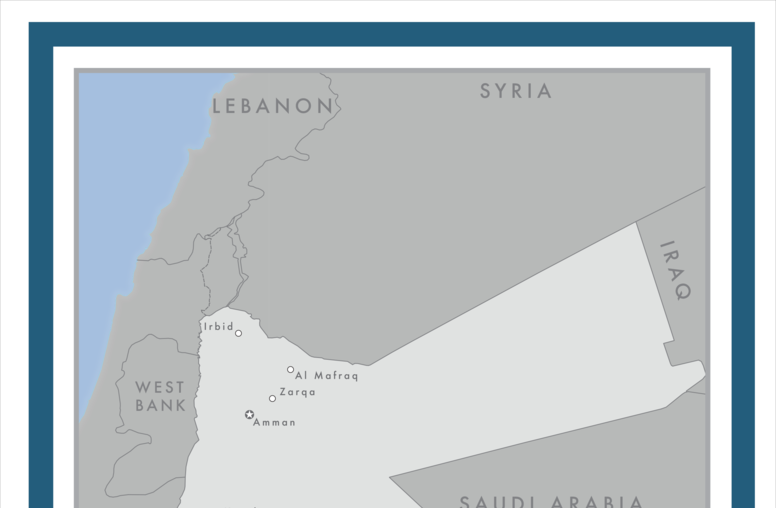
Preserving Stability Amidst Regional Conflagration: US-Jordan 2011-2016
This series of case studies—Burma (2009-2015), Jordan (2011-2016), and the Lake Chad Region (2013-2016)—document efforts and draw lessons from where US government leaders believe deepening crises were staved off through collaborative inter-agency engagement. Part of USIP’s “3D Learning from Complex Crises” project, the cases provide programmatic and operational lessons from complex operating environments. These lessons support systemic integrated approaches to complex crises and will better equip individuals to share objectives when working in inter-agency environments.